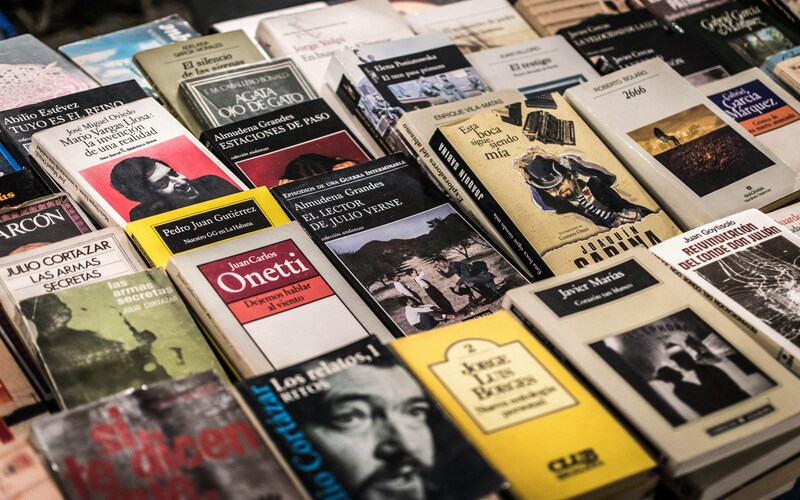
Ranking the Most Captivating Novels: A Filipino Audience Perspective
Writing has continuously held a extraordinary put within the hearts of Filipinos, with books serving as windows to diverse universes, societies, and viewpoints. In this article, we dig into the foremost captivating books from a Filipino gathering of people viewpoint, investigating the affect of writing on the Filipino psyche and the persevering notoriety of books within the nation.
The Centrality of Books in Filipino Culture

Books have long been cherished in Filipino culture, advertising perusers an elude from reality and a see into the complexities of the human encounter. From classic works of Philippine writing to worldwide successes, books hold the control to charm, motivate, and incite thought among Filipino perusers.
Social Personality:
Books play an urgent part in forming and protecting Filipino social character, reflecting the wealthy embroidered artwork of conventions, convictions, and values that characterize Filipino involvement. Works by Filipino creators such as Jose Rizal, Scratch Joaquin, and F. Sionil Jose reverberate profoundly with Filipino perusers, giving bits of knowledge into the country's history, legacy, and collective awareness.
Read More: 11 Best Novels Translated from Thailand to English: Still Worth to Read in 2024
Social Commentary
Books serve as stages for social commentary and evaluation, tending to squeeze issues such as destitution, debasement, and personality legislative issues. Filipino writers regularly draw motivation from real-life occasions and societal challenges, using fiction as a medium to incite discourse, raise mindfulness, and advocate for alteration.
Excited Resonation:
Books have the power to bring out a wide run of sentiments, from euphoria and snickering to feeling sorry for and reflection. Filipino perusers frequently shape significant, energetic associations with the characters, settings, and points depicted in books, finding consolation, sensitivity, and understanding interior the pages of a book.
The Philippines, a country found in Southeast Asia, envelops an affluent and grouped scholarly convention that dates back to pre-colonial times. The foremost prompt shapes of Philippine composing were verbal traditions, passed down through periods by word of mouth. This well-off social bequest was a short time later enhanced and affected by Spanish, American, and Japanese colonialism. These days, Philippine composing may be an energetic and enthusiastic field that reflects the country's complex history and contrasting social impacts. From verse and brief stories to books and plays, Filipino scholars have created works that investigate a wide run of subjects, from the battles of the standard of living to the complexities of personality and belonging. Some of the foremost well-known scholarly works within the Philippines incorporate Jose Rizal's "Noli Me Tangere" and "El Filibusterismo," which are considered seminal works of Philippine writing. Other striking works incorporate F. Sionil Jose's "Rosales Adventure," Scratch Joaquin's "The Lady Who Had Two Navels," and Lualhati Bautista's "Dekada '70." In spite of the challenges confronted by the Philippine scholarly scene, counting constrained assets and a lack of government backing, Filipino journalists proceed to create works that reverberate with groups of onlookers both in the Philippines and around the world.
The Foremost Captivating Books: A Filipino Point of View

Whereas the definition of a "captivating" novel may change from peruser to peruser, a few works have earned far-reaching recognition and reverence among Filipino gatherings of people:
"Noli Me Tangere" and "El Filibusterismo" by Jose Rizal
Respected as seminal works of Philippine writing, Rizal's books investigate topics of colonialism, patriotism, and social treachery. "Noli Me Tangere" and "El Filibusterismo" proceed to reverberate with Filipino perusers, starting talks on Philippine history and character.
"Littler and Littler Circles" by F.H. Batacan
This wrongdoing novel offers a grasping depiction of debasement and viciousness in modern Philippine society. Set against the scenery of Manila's ghettos, "Littler and Littler Circles" takes after two Jesuit clerics as they examine an arrangement of horrifying murders, highlighting the crossing point of religion, legislative issues, and wrongdoing.
"Heneral Luna" by Ricardo Lee
Motivated by the life of Common Antonio Luna, this authentic novel offers a distinctive depiction of the Philippine Transformation against Spanish colonial run the show. "Heneral Luna" dives into the complexities of administration, patriotism, and disloyalty, reverberating with Filipino gatherings of people for its investigation of national character and giving up.
"Inept is Until the end of time" by Miriam Defensor Santiago
Inept is Forever, a collection of witty and funny papers by the late Congressperson Miriam Defensor Santiago, ", offers sharp perceptions on Philippine legislative issues, culture, and society. With its disrespectful humour and sharp commentary, the book has gotten to be a success within the Philippines, winning laud for its mind and intelligence.
"Ang Paboritong Libro ni Hudas" by Bounce Ong
Known for his mocking take on Filipino society, Weave Ong's "Ang Paboritong Libro ni Hudas" offers a funny and thought-provoking commentary on life, adore, and human nature. Through an arrangement of accounts and reflections, the novel investigates the absurdities and inconsistencies of present-day life, striking a chord with Filipino perusers for its mind and insight.
Long-term Books in Filipino Writing

In spite of the rise of computerized media and the multiplication of elective shapes of excitement, books proceed to hold an uncommon put in Filipino writing and culture. With the appearance of e-books, audiobooks, and online stages, books have become more open than ever, reaching new gatherings of people and bridging topographical separates.
1. Differing Voices
The long run of Filipino writing lies within the intensification of different voices and points of view, counting those of marginalized communities and underrepresented bunches. By cultivating inclusivity and grasping different narrating conventions, Filipino creators can improve the scholarly scene and reflect the complete range of Filipino encounters.
2. Advanced Development
The computerized transformation has transformed the way books are expended, shared, and created. Advanced stages offer modern openings for Filipino creators to reach worldwide groups of onlookers and explore imaginative narrating methods, from intelligent fiction to serialized narrating.
3. Social Trade
Books serve as conduits for social trade and exchange, cultivating associations between Filipino perusers and perusers from around the world. Through interpretations, adjustments, and collaborations, Filipino writing can rise above borders and contribute to a more interconnected worldwide literary community.
In conclusion, books hold an extraordinary put in Filipino writing and culture, advertising perusers a different cluster of stories, points of view, and encounters. From classic works of Philippine writing to modern blockbusters, books proceed to fascinate and motivate Filipino groups of onlookers, serving as windows to diverse universes and mirrors to our possess. As Filipino writing advances and adjusts to the computerized age, novels will stay fundamental columns of our social legacy, forming the way we see ourselves and the world around us. For further exploration of localization and other captivating features of the gaming world, keep taking after Digital Trans Asia. Your investigation into the dynamic universe of worldwide gaming is standing by.